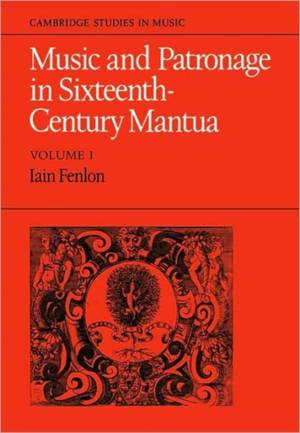
- Afhalen na 1 uur in een winkel met voorraad
- Gratis thuislevering in België vanaf € 30
- Ruim aanbod met 7 miljoen producten
- Afhalen na 1 uur in een winkel met voorraad
- Gratis thuislevering in België vanaf € 30
- Ruim aanbod met 7 miljoen producten
Zoeken
€ 61,95
+ 123 punten
Uitvoering
Omschrijving
Viewed traditionally, the history of sixteenth-century Mantuan music is almost a catalogue of some of the most distinguished composers of the age, from Tromboncino and Cara, via Jacquet of Mantua, to Wert, Palestrina, Marenzio, Pallavicino, Gastoldi, Rossi and Monteverdi. The remarkable achievements of composers under Gonzaga patronage, practically synonymous with Mantuan patronage during this period, are treated here in their social context. The arguments proceed not just from the music itself, but from detailed examination of archival sources, from which Dr Fenlon reconstructs employment patterns and describes the social structure and institutional life of the city. The aim of the book is to show how the patterns of patronage, and music and musicians, reflect and illuminate the temperaments and prime preoccupations of successive rulers. The book contains a substantial appendix of unpublished archival documents, a small proportion only of the scholarly and comparative sources on which the study is based.
Specificaties
Betrokkenen
- Auteur(s):
- Uitgeverij:
Inhoud
- Aantal bladzijden:
- 248
- Taal:
- Engels
- Reeks:
Eigenschappen
- Productcode (EAN):
- 9780521088336
- Verschijningsdatum:
- 30/10/2008
- Uitvoering:
- Paperback
- Formaat:
- Trade paperback (VS)
- Afmetingen:
- 170 mm x 244 mm
- Gewicht:
- 399 g

Alleen bij Standaard Boekhandel
+ 123 punten op je klantenkaart van Standaard Boekhandel
Beoordelingen
We publiceren alleen reviews die voldoen aan de voorwaarden voor reviews. Bekijk onze voorwaarden voor reviews.











